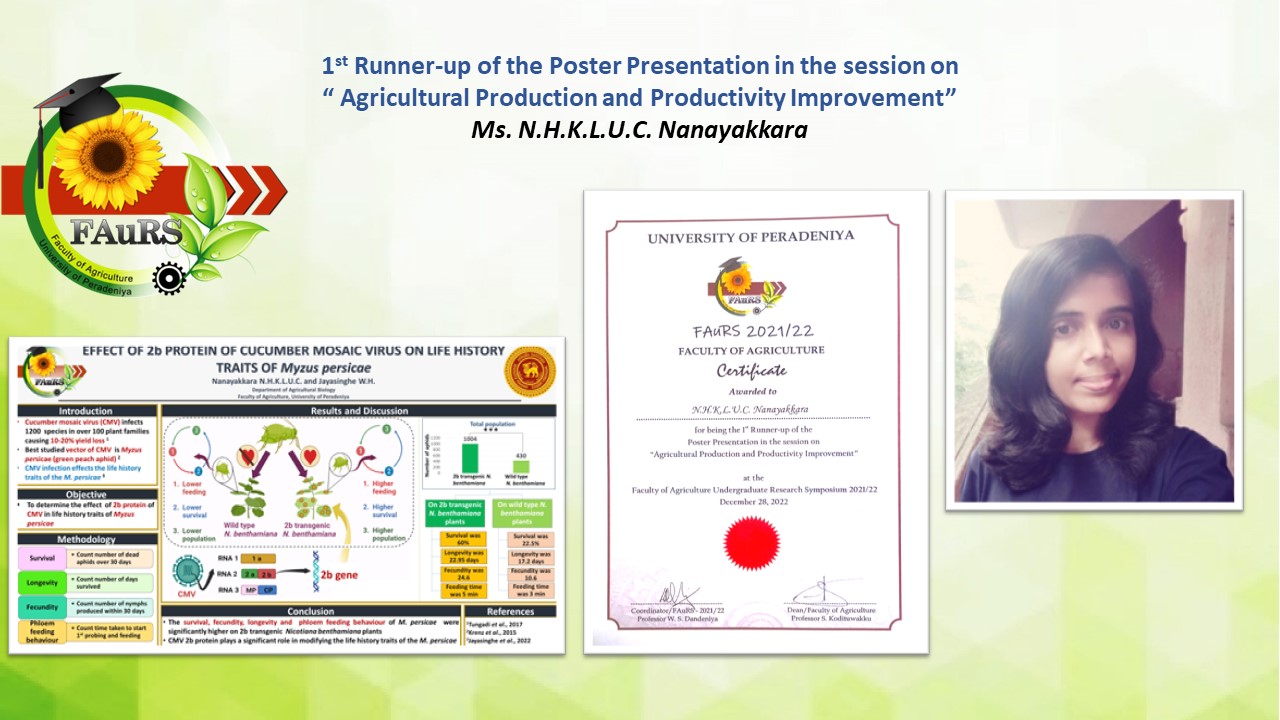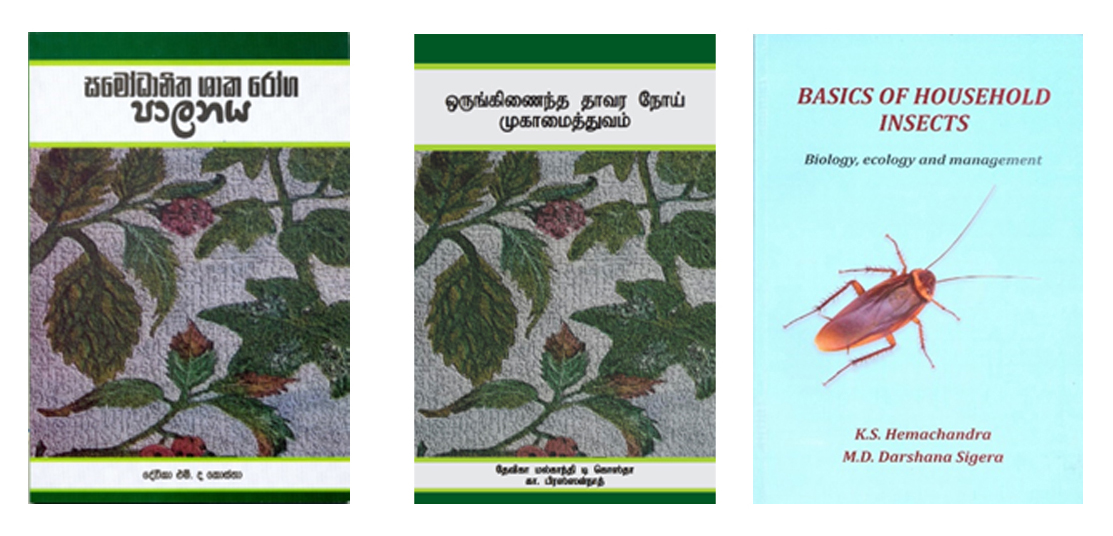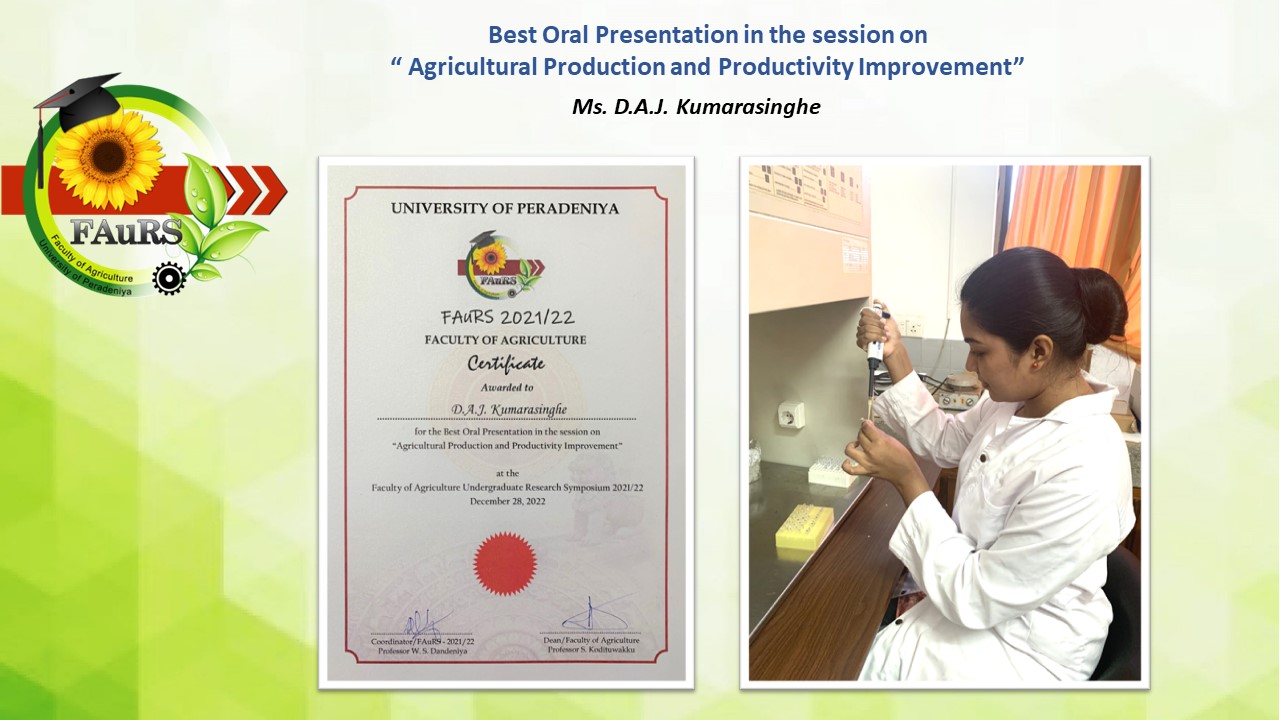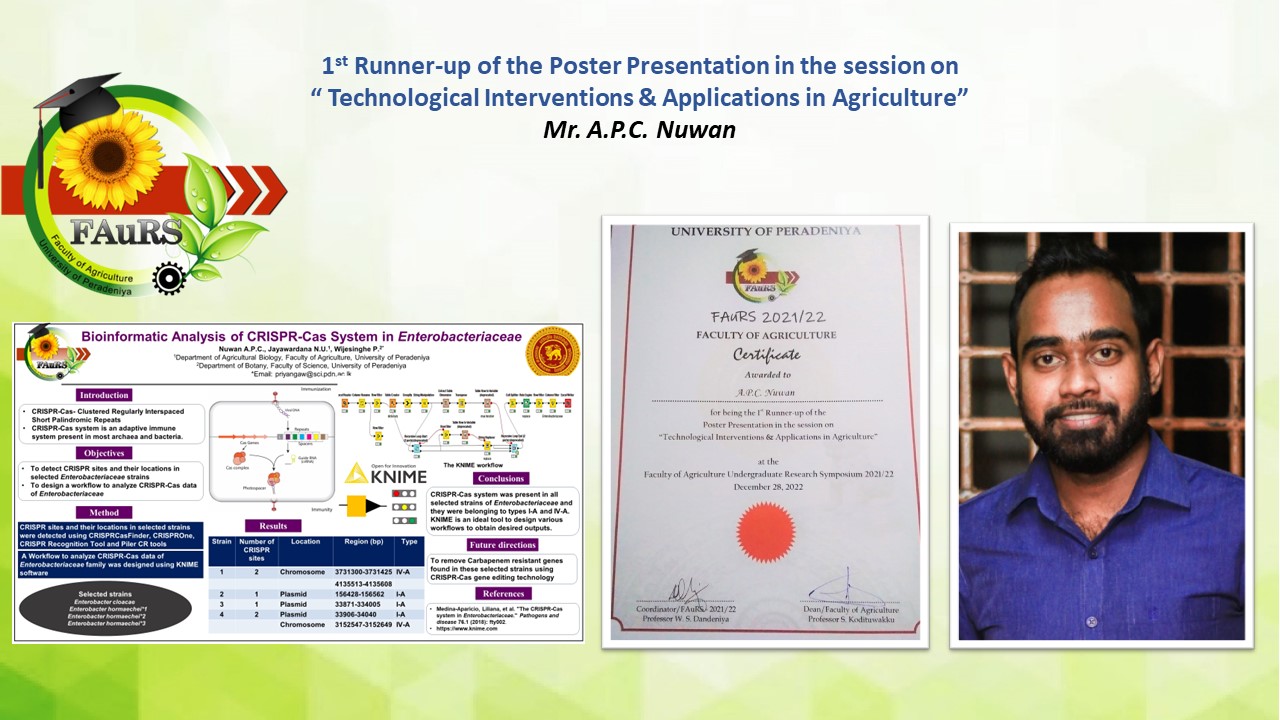
11-Jan-2023
FAuRS 2021/2022 - 1st Runner-up of the Poster Presentation in the session on “ Agricultural Production and Productivity Improvement” Ms. N.H.K.L.U.C. Nanayakkara (AG/16/109)
Title : Effect of 2b Protein of Cucumber Mosaic Virus on Life History Traits of Myzus persicae
Many kinds of viruses constantly attack plants and these viruses have evolved not only with their host, but also the vectors contribute to transmit them. To ensure the maintenance and survival of these viruses in the ecosystem, transmission from host to host by vectors plays a significant role. As a mean of transportation, most plant virus species (88%) use arthropod vectors. Aphids are among the most important arthropod vectors of plant viruses. Cucumber Mosaic Virus (CMV) is one such important virus which is vectored over 70 aphid species. Among them best studied vector is Myzus persicae. Effect of infection of CMV on life history traits of Myzus persicae is well studied. Greater understanding abo
ut the underlying mechanism behind this virus transmission process will be important in determining how these forces has shaped the evolution of this virus in the ecosystem as well as this knowledge can be used to formulate sustainable pest management practices thereby control the vector born virus diseases. We investigated the effect of 2b protein of CMV on aphid vectors using 2b transgenic Nicotiana benthamiana. The estimated survival percentages of aphids 30 days after the introduction to 2b transgenic and wild-type plants were 60% and 22.5%, respectively. The total population over a 30-day period was significantly (P=0.00) higher in aphids on 2b transgenic plants compared to that of wild-type plants. The mean fecundity over a 30-day observation period was 24.5 and 10.4 for aphids grown on 2b transgenic and wild-type plants, respectively. However, there was no significant difference (P=0.117) in the intrinsic rate of increase (mr) of the aphids grown on 2b transgenic plants and wild-type plants. The longevity of aphids was significantly higher on 2b transgenic plants compared to that of wild-type plants (P=0.012). Similarly, 2b transgenic plants are significantly more susceptible to M. persicae in terms of time for 1st probing (P=0.004) and duration of phloem sap-feeding (P=0.011). According to our results, we conjecture that the CMV 2b protein plays a significant role in modification of life history traits of M. persicae. Therefore we can suggest aphid control as an important management strategy to control Cucumber mosaic virus from our crop ecosystem.









